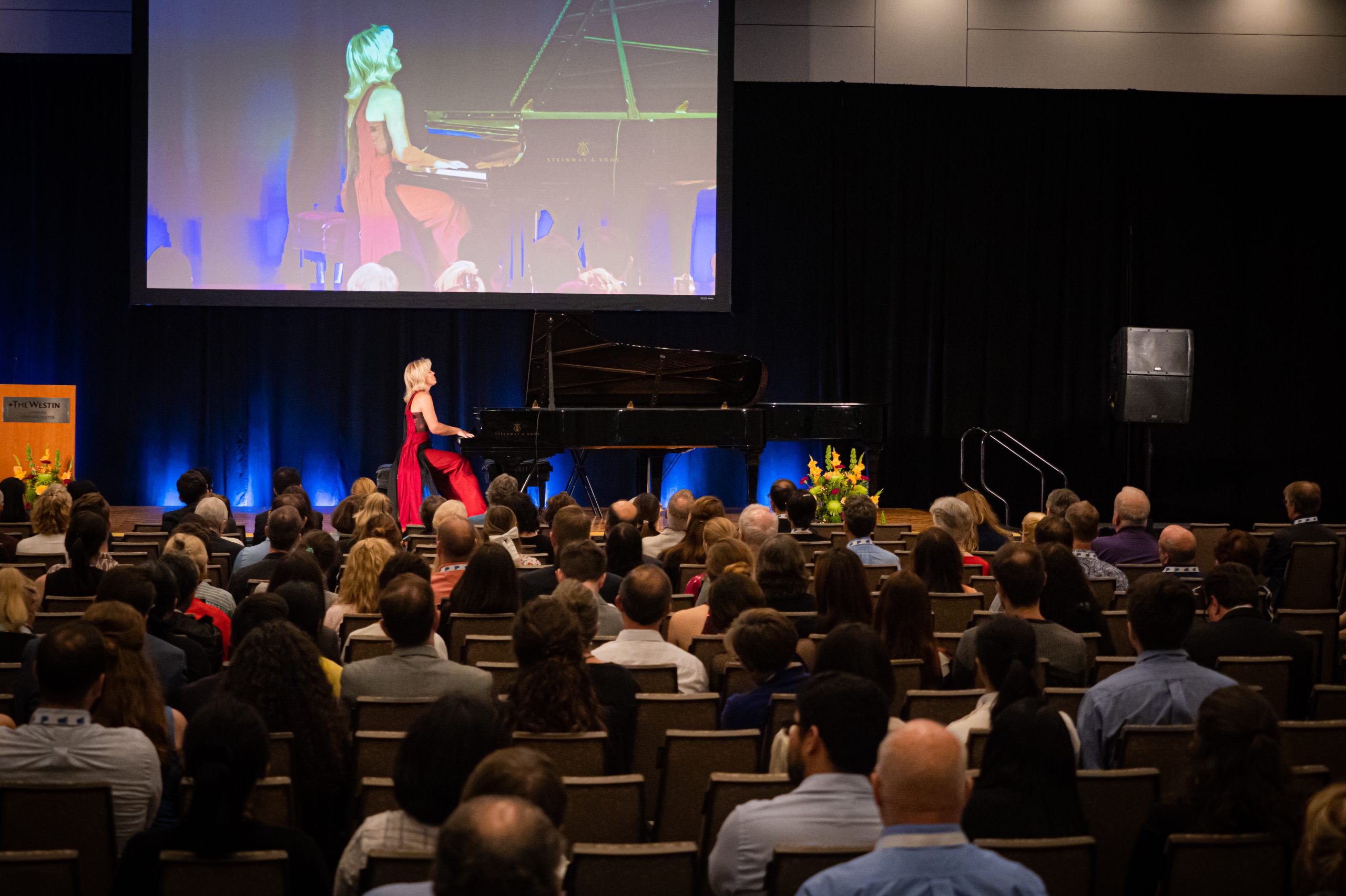To celebrate the latest episode of the Piano Inspires Podcast featuring Olga Kern, we are sharing an excerpted transcript of her conversation with Luis Sanchez. Want to learn more about Kern? Check out the latest installment of the Piano Inspires Podcast. To learn more, visit pianoinspires.com. Listen to our latest episode with Kern on Apple Podcasts, Spotify, YouTube, or our website!

Luis Sanchez: You live such an incredibly busy life with your teaching, your traveling, and your concertizing. How do you balance your life so that you can also have time to learn new repertoire or do other things?
Olga Kern: Yes, the balance is everything. I remember after winning the Van Cliburn Competition, there were so many concerts right away for me and traveling. I always wanted to do this. That was my life. I actually wanted to participate in a competition to have a possibility to perform, to be on stage. For me, that was the most important thing. Then when I got this—and you know, reading about Rachmaninoff’s life and he had 300 concerts a year—I was thinking [about] how he could even compose in between, you know, all of that incredible music and then perform at that level. Actually, traveling [those] days was not as easy as now. I was always thinking, “I want to try how it feels to have that many travels, concerts, different repertoire, orchestra performances, solo, chamber music.” It’s always different, plus the recordings, plus it’s all the time something happening.
For me, it was very challenging the first years to find the right balance. I have a very good friend—a Chinese woman [who] is really one of [my] best friends. She lives in Colorado, and she’s a piano teacher. She told me that balance is, of course, one of the most important things. Actually from her, she told me, “You really need to know when to stop, and just [breathe] between even practicing, just to find the balance of rest, and [doing] something else, and then work, and then the family; everything needs to be balanced.” To find this is very difficult, but it’s very necessary. So it took me a few years to find that balance, and I found it. Of course with the help—in my family situation—with the help of my mom because my son was very little, and without help, I couldn’t do it. My parents were always there for me, so I’m very thankful for that. Help is very important. I know that when I’m practicing, I can go for five hours non-stop. But then you [are] also tired in your mind. And then these five hours sometimes are not really productive.
Another example in Rachmaninoff’s memoirs: he was writing to one of his friends, “You know, I don’t have much time to practice because I’m traveling, I’m performing all the time. But if I have one-to-two hours a day, this productive practice is definitely better than to sit at the piano eight hours and have nothing achieved.” So I always was thinking—all of the travels I have—that actually I need to rest more, and then come to practice with the clear mind [for] two hours, but focused and working hard. And then in these two hours, you can really achieve so much more than [if] you have the whole day free. And you think, “Okay? I’m just—.” No, you really need to be focused, and you need to have [an] exact schedule in your mind, if you have that [many] things happening. My friends are always fascinated how I have everything in order, I am a very “on schedule” kind of person. I like to know what’s happening in the daytime, how much time I have, for this particular thing, for that particular thing. I like to schedule things. So I know my plan, especially on the day of the concert, or day of the travels. It’s always a different program I’m performing, and sometimes it’s a new piece. I always need to find the right balance and the right schedule for the old pieces I’m playing, for the new piece I’m working on. If I have a vacation, it’s fantastic. But usually a vacation is no more than one week. And you need to be very productive in that week. You also want to rest, it’s very important, otherwise the productivity of work is not the same. So I always try to find the time for rest, for a good time, [and] also to enjoy the theater—I love opera. So I try as much as I can on vacation to find time for this.
If you enjoyed this excerpt from Piano Inspires Podcast’s latest episode, listen to the entire episode with Olga Kern on Apple Podcasts, Spotify, YouTube, or our website!
MORE ON OLGA KERN
- MAGAZINE ARTICLE: OLGA KERN: A Consummate and Positive ARTIST by Sara Ernst
- MAGAZINE ARTICLE: Tone production: Doing the right things for the right reasons by Chad Twedt
- MAGAZINE ARTICLE: The Piano on Film: An Interview With Director Peter Rosen by Pete Jutras
- MAGAZINE ARTICLE: Remembering Van Cliburn
- DISCOVERY PAGE: OLGA KERN: A Consummate and Positive Artist by Sara Ernst